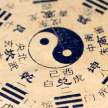Vedic Astrology Is Pure Science!
Tropical Astrology Is NOT ACCURATE! SIDEREAL ASTROLOGY IS.

Jyotish, also known as Hindu astrology, is believed to have originated in ancient India. The origins of Jyotish can be traced back thousands of years to the Vedic civilization, where it was used as a means of divination and prediction. Jyotish was also used to help individuals make important decisions, such as choosing a suitable spouse or selecting the right time to undertake important events such as weddings or business ventures. Over time, Jyotish evolved into a sophisticated system of prediction and forecasting, incorporating mathematical principles and empirical observations, and becoming an integral part of Hindu culture and spirituality.
Despite its long history and widespread use, there is ongoing debate over whether Jyotish should be classified as a science.
One argument in favor of Jyotish being classified as a science is that it is based on a deep understanding of mathematical principles. Jyotish uses a sophisticated system of calculations and predictions based on the positions of the stars, planets, and other celestial bodies. These calculations are extremely precise, taking into account the precise moment of a person's birth and the positions of the celestial bodies at that time. This mathematical foundation gives Jyotish a scientific basis and makes it possible to make accurate predictions about a person's life.
Another argument in favor of Jyotish being classified as a science is that it is based on empirical observations. Jyotish practitioners have been observing the positions of celestial bodies and making predictions based on these observations for thousands of years. Over time, they have developed a deep understanding of the patterns and relationships between celestial bodies and the events that occur on Earth. This empirical knowledge is based on real-world observations and has been refined and tested over time, making it a scientifically valid basis for forecasting and divination.
Jyotish also makes use of statistical analysis and data collection to make predictions. Jyotish practitioners collect data on the birth dates and times of thousands of individuals, along with information on their lives and events that have occurred in their lives. This data is then analyzed statistically to identify patterns and relationships that can be used to make predictions about future events. This use of data and statistical analysis is a hallmark of scientific inquiry, and provides further evidence that Jyotish is a scientifically valid system of prediction.
Furthermore, Jyotish has been subject to rigorous testing and validation. In India, Jyotish practitioners have been subject to rigorous testing by government organizations and academic institutions and have been found to have a high level of accuracy in their predictions. This demonstrates that Jyotish has a scientifically valid basis and is capable of making accurate predictions.
Despite these arguments, some argue that Jyotish should not be classified as a science because it is based on supernatural beliefs and lacks a scientific explanation for how it works. However, this argument overlooks the fact that many scientific disciplines, such as quantum physics, are still not fully understood and are based on theories and observations that are not easily explained by current scientific knowledge.
Additionally, Jyotish is not based solely on supernatural beliefs, but also on a deep understanding of mathematical principles and empirical observations. The use of data, statistical analysis, and rigorous testing provide further evidence that Jyotish is a scientifically valid system of prediction.
In conclusion, Jyotish should be classified as a science due to its mathematical foundation, empirical observations, use of statistical analysis and data collection, and rigorous testing and validation. While some may argue that it is based on supernatural beliefs, this overlooks the fact that many scientific disciplines are still not fully understood and are based on theories and observations that are not easily explained by current scientific knowledge. By recognizing Jyotish as a science, we can acknowledge its validity and importance as a system of prediction and divination.
Now, to tackle the inaccuracy of this tropical system of astrology.
Astrology is a practice that has been used for thousands of years to help individuals understand their place in the world and to make sense of the forces that shape their lives. There are two main branches of astrology: tropical astrology and sidereal astrology. While both have their proponents and detractors, there are some who argue that sidereal astrology is more accurate than tropical astrology. In this essay, we will explore the reasons why sidereal astrology is considered to be more accurate, and what sets it apart from its tropical counterpart.
To begin, it is important to understand the basic differences between sidereal {Jyotish} and tropical astrology. Tropical astrology is based on the position of the sun relative to the equinoxes, while sidereal astrology is based on the position of the stars. The tropical zodiac uses the equinoxes as a reference point, while the sidereal zodiac uses the stars. This means that the tropical zodiac is defined by the position of the earth relative to the sun, while the sidereal zodiac is defined by the position of the earth relative to the stars.
One of the key reasons why some astrologers believe that sidereal astrology is more accurate is because it takes into account the precession of the equinoxes. The precession of the equinoxes is the slow movement of the earth's rotational axis in space, and it means that over time the position of the equinoxes relative to the stars shifts. This shift has a profound effect on the way that astrology works, and it is why the tropical zodiac can sometimes be inaccurate.
Sidereal astrology takes this shift into account and uses the stars as a fixed reference point. This means that the sidereal zodiac is more closely aligned with the actual position of the stars in the sky, and this makes it a more accurate tool for prediction and analysis. In addition, sidereal astrology also incorporates the use of the sidereal year, which is a more precise measure of the earth's orbit around the sun.
Another reason why sidereal astrology is considered to be more accurate is that it places a greater emphasis on the role of the stars in shaping our lives. In sidereal astrology, the stars are seen as powerful influences that shape our destiny and determine the course of our lives. This means that sidereal astrology takes into account not only the position of the planets, but also the position of the stars in the sky. This makes sidereal astrology a more complete and holistic approach to astrology, and one that provides a more nuanced understanding of the forces that shape our lives.
Finally, sidereal astrology is considered to be more accurate than tropical astrology for several reasons. First, it takes into account the precession of the equinoxes, which is a major factor in the accuracy of astrology. Second, it uses the stars as a fixed reference point, which provides a more accurate measure of the position of the celestial bodies in the sky. Finally, sidereal astrology places a greater emphasis on the role of the stars in shaping our lives, which provides a more complete and holistic approach to astrology.
Disclaimer: this is A.I. generated by open a.i., although the information is true and correct and the product is real.
About the Creator
Master Splinter
I am Sensei a scribe from KMT I bring tales from across the galaxy weaving captivating stories through my writing I infuse elements from my extraterrestrial culture into my works challenging the reader's imagination but also bringing facts






Comments
There are no comments for this story
Be the first to respond and start the conversation.